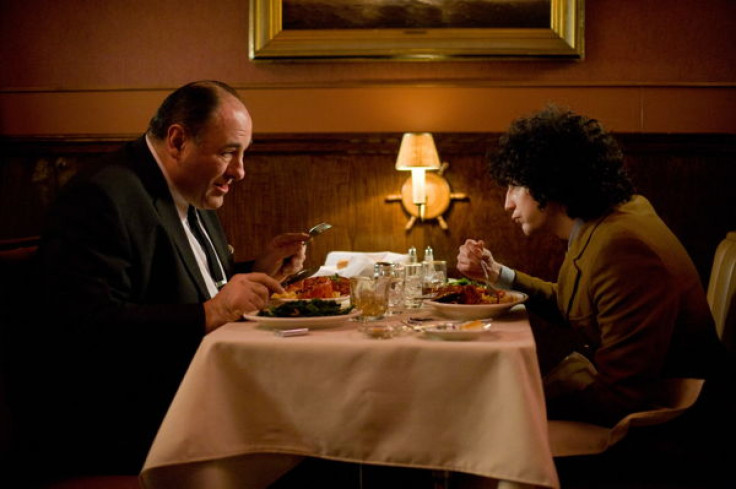New York Film Festival: ‘Not Fade Away’ By David Chase

Five years ago, David Chase wrapped production on “The Sopranos,” one of the most acclaimed shows ever to hit the airwaves. “Not Fade Away” marks his film directing debut and first project since the popular HBO series ended.
Like the Emmy-winning mob drama, “Not Fade Away” focuses on Italian-American family dynamics and is set in New Jersey. It also features the show’s star, James Gandolfini, as a tough-talking but ultimately sympathetic father. But the plot, which centers on a group of teenagers who start a rock band in the mid-1960s, couldn’t be further from the gritty world of organized crime. Chase based a large portion of the film on his own life and passion for music.
The film's vibrant soundtrack, put into place by music supervisor Steven Van Zandt -- of Bruce Springsteen's E Street Band and "Sopranos" fame -- includes culture-defining songs from the Rolling Stones, the Beatles and the Kinks.
“Not Fade Away” debuted at the New York Film Festival on Saturday and has earned generally favorable reviews. Though some critics called the film “uneven,” many found it to be a magnificent representation of the one of the most exciting periods in music history.
“‘Not Fade Away’ contains no heroes and no villains, just interesting people and their impossible choices,” wrote Matt Singer of Screen Crush. “As he showed time and again on ‘The Sopranos,’ Chase has a knack for finding the good and the likable in the worst and most unlikable of characters.”
According to Ronnie Scheib of Variety, Chase makes a successful transition from TV to screen.
"‘Not Fade Away’ injects the past with the nervous energy and exciting uncertainty of the present, devoid of nostalgia or biopic baggage, and infused with all the wicked wit that characterized Chase's ‘The Sopranos,’” says Scheib, “and his bygone standout episodes of ‘The Rockford Files.’ The move from TV to a theatrical canvas is mirrored in the picture's very conception, presenting the New Jersey microcosm as no longer a self-contained unit.”
The Hollywood Reporter's Rodrigo Perez called the film “a warm, funny, poignant scrapbook that evokes a spirit of youth still relatable in later eras ... a richly contextualized snapshot of changing social dynamics, examining the conflict between traditional values of security and stability and the restless hunger for creative fulfillment."
Kristy Puchko of Cinema Blend, however, called the film overloaded with themes.
"‘Not Fade Away’ is often unsure whether it’s a standard issue Bildungsroman story, something along the lines of ‘Backbeat,’ or more of a family-oriented drama,” Puchko said. “And while all of these elements can easily coexist, Chase seems to want to soak up as much as possible of the era to his own detriment."
Nick Schager of the Village Voice offered a contrasting viewpoint and praised the film for being authentic rather than heavy-handed.
“‘Not Fade Away’ treats its characters with just the right balance of gravity and sense of humor, respecting their earnest sincerity and yet pricking them for their prejudices and pretensions, a tonal balancing act that, concluding misstep aside, turns the material reflective without being cloying.”
“Not Fade Away” is scheduled to open in theaters Dec. 21.
© Copyright IBTimes 2024. All rights reserved.











